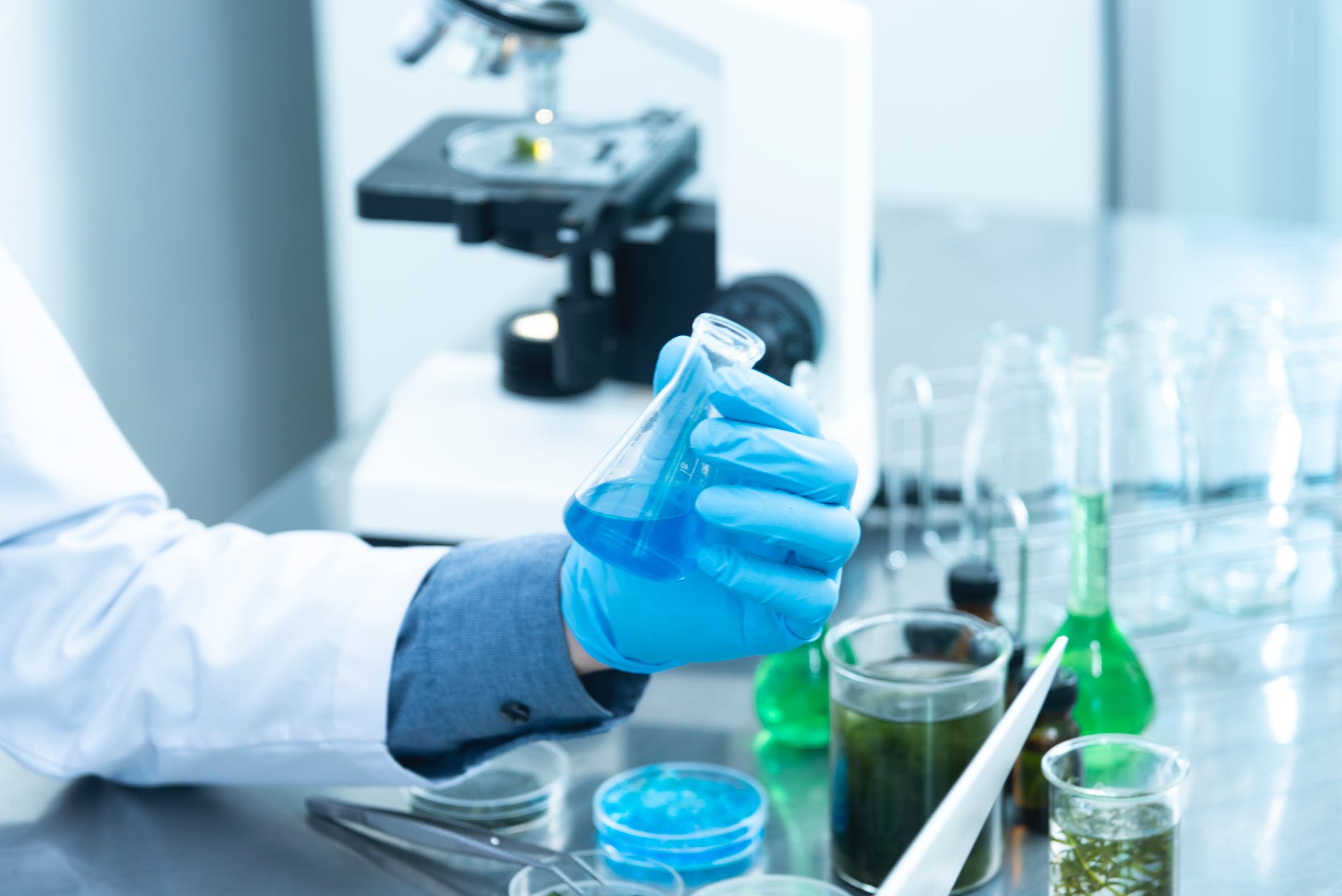Medical technologists are responsible for performing medical laboratory tests to aid in diagnosing illness.
They use a variety of instruments and techniques to examine body fluids, tissues, and cells.
To become a medical technologist, you will need a bachelor’s degree in medical technology or a related field such as biology.
You will learn how to operate laboratory equipment and interpret test results during your studies.
We will explore in detail how to become a medical technologist with a biology degree.
What is the field of medical laboratory science?
Clinical Laboratory Science is a branch of medicine that provides laboratory information and services needed for the diagnosis and treatment of disease.
It is also known as Medical Laboratory Science or Medical Technology – the word clinical laboratory science means something that involves analysing and analysing samples in a laboratory.
Hospitals and doctors’ offices depend on the important work of a medical laboratory technicians who are involved in this field. These professionals are a critical component of a well-functioning healthcare facility.
They work under the supervision of physicians, lab managers or lab technologists, helping doctors detect diseases or illnesses and determine treatment options through their understanding of biology, medicine and biochemistry.
How to Become a Medical Technologist with a Biology Degree
Medical technologists also called clinical laboratory scientists, or medical laboratory scientists are responsible for performing tests on blood and other body fluids to help doctors diagnose and treat medical conditions.
They typically have a biology degree, or a degree in a closely related subject such as chemistry or microbiology, and many earn certification from the American Society for Clinical Pathology (ASCP).
This is the largest professional membership association for lab professionals and pathologists in America.
The equivalent of this in the UK would be the Health and Care Professions Council (HCPC).
Some individuals may choose to pursue an advanced degree in medical technology or another field.
Many medical technologists work in clinical laboratories at hospitals or other healthcare facilities.
Undergraduate students interested in pursuing a career as medical technologists should take biology, chemistry, math, and physics courses.
They should also consider completing an internship or volunteering at a local clinic, biomedical science lab, research facility, or hospital.
What you need to study and what you need to do to become a medical technologist
Medical technologists are responsible for analyzing blood, urine, and other body fluids to diagnose diseases.
They use sophisticated technology to test patient specimens for viruses, bacteria, and other organisms.
As such, they are required to study for degrees that provide a solid foundation in the healthcare sciences, as well as tissue sampling, biochemistry, and haematological tests and principles.
To become a medical technologist, you need to complete a certificate or associate’s degree program in medical laboratory science or molecular biology.
You also need to have strong math and science skills, as well as working knowledge of computers.
Although obtaining a medical technologist certification is not a requirement for employment, many hospitals and laboratories favour hiring those with credentials.
You must have at least a Bachelor’s degree in medical technology or another life science to be qualified for this certification.
The exam may vary depending on the certification, but it is usually multiple-choice and can be taken at local colleges, test centres, universities, and schools.
Prior to being qualified to apply for certification, the majority of associations that are certified to certify medical technologists demand two years of experience, so bear this in mind.
The experience you need to have before becoming a medical technologist
When you’re looking at careers in the medical field, it’s important to know what experience you need before becoming a medical technologist.
The school you attend for your medical technology degree can possibly set you up with an internship or other experience. Some medical technologists choose to do internships or shadow senior medical technologists in order to become more familiar with their work. Taking the time to learn about a career before applying for a job will increase your hiring odds.
Each school may have distinct application criteria, but the majority of them call for applicants to hold a bachelor’s degree and at least 12 hours of clinical experience as a medical technologist.
You can become certified by various groups after two years of experience working as a medical technologist, but you must make sure they are accredited.
It’s also important to have experience with computers, as many of the tests run on patients are now done through computer systems, and rapidly advancing technology.
You can get this experience through undergraduate or graduate programs in medical technology or by working in a hospital laboratory setting.
What certification is required to be a medical technologist and how to get it
In order to become a medical technologist, you need to have at least a bachelor’s degree in medical technology or a related field.
You can find accredited programs at universities and colleges around the country.
Once you have your degree, you will need to pass an exam from the Board of Registry of the American Society for Clinical Pathology (ASCP) in order to become certified.
How to find work as a medical technologist?
Finding work as a medical technologist requires the above criteria to first be met.
After meeting your core requirements including enrolling on an accredited program, and gaining a registry with the ASCP, you are able to start applying to roles having got sufficient work experience.
Medical technologists are in high demand, and the job outlook for this career is excellent. The number of jobs for medical technologists is expected to grow by at least 5 per cent.
This growth is due, in part, to the ageing population and their need for more medical care.
If you are interested in becoming a medical technologist, your best bet is to start out as an entry-level employee.
Most medical technologists have at least a bachelor’s degree in medical technology or a related field.
The last decade has seen a rise in the number of people pursuing careers as medical technologists. As a result, competition for jobs can be fierce and the best way to stand out is to improve your skill sets and work experience.
Work experience can be gained through volunteering in a clinical facility, engaging in clinical training, or carrying out entry-level work even in an unrelated industry.
As an undergraduate biology student, there will be plenty of opportunities to engage in volunteering activities. this will include research-based activities with direct experience processing tissue samples and clinical samples, and getting exposure to molecular diagnostics and the wider public health implications.
The job opportunities are endless, with the options to work as a biology lab technician, patient care pathology specialist, health care scientist, or clinical lab scientist.
Gaining a membership with the American society of clinical pathologists will certainly boost your job prospects when it comes to getting hired.
How much money do medical technologists make?
There is a high demand for medical technologists, and their salaries reflect that.
The median annual salary for medical technologists is $55,000.
However, with experience and additional training, medical technologists can earn much more.
There are many opportunities for advancement in this field, and the job growth potential is excellent. Entry-level medical technologists can expect to make around $40,000 per year.
Conclusion
In conclusion, if you are interested in a career in medical technology and have a biology degree, there are a few things you can do to increase your chances of getting hired.
First, get certified by the American Society for Clinical Pathology.
Then, get experience in the field by volunteering or working as a technician.
Finally, network with professionals in the industry and keep up with the latest advancements in medical technology.
With hard work and perseverance, you can achieve your goal of becoming a medical technologist.

![[MacOS Error] – Compressor does not support running in a macos virtual machine](https://cdn-0.ghoopi.com/wp-content/uploads/2023/09/img_6688-150x150.jpg)










